Tosca is an opera by Giacomo Puccini.
Contents
Tosca may also refer to:
Tosca is an opera by Giacomo Puccini.
Tosca may also refer to:
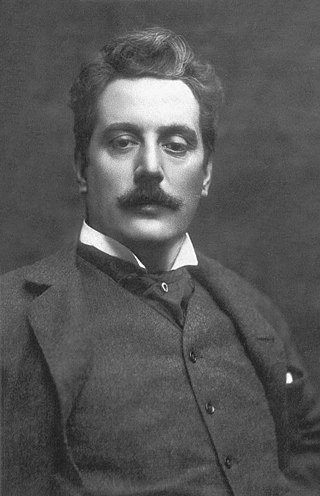
Giacomo Puccini was an Italian composer known primarily for his operas. Regarded as the greatest and most successful proponent of Italian opera after Verdi, he was descended from a long line of composers, stemming from the late Baroque era. Though his early work was firmly rooted in traditional late-19th-century Romantic Italian opera, it later developed in the realistic verismo style, of which he became one of the leading exponents.

Tosca is an opera in three acts by Giacomo Puccini to an Italian libretto by Luigi Illica and Giuseppe Giacosa. It premiered at the Teatro Costanzi in Rome on 14 January 1900. The work, based on Victorien Sardou's 1887 French-language dramatic play, La Tosca, is a melodramatic piece set in Rome in June 1800, with the Kingdom of Naples's control of Rome threatened by Napoleon's invasion of Italy. It contains depictions of torture, murder, and suicide, as well as some of Puccini's best-known lyrical arias.

La Tosca is a five-act drama by the 19th-century French playwright Victorien Sardou. It was first performed on 24 November 1887 at the Théâtre de la Porte Saint-Martin in Paris, with Sarah Bernhardt in the title role. Despite negative reviews from the Paris critics at the opening night, it became one of Sardou's most successful plays and was toured by Bernhardt throughout the world in the years following its premiere. The play itself had dropped from the standard theatrical repertoire by the mid-1920s, but its operatic adaptation, Giacomo Puccini's Tosca, has achieved enduring popularity. There have been several other adaptations of the play including two for the Japanese theatre and an English burlesque, Tra-La-La Tosca as well as several film versions.
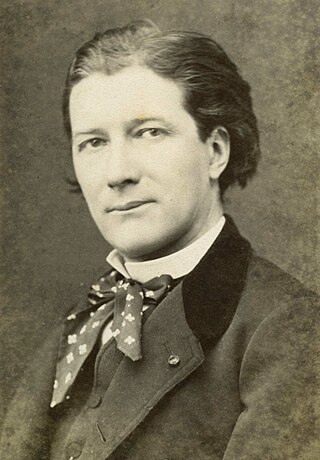
Victorien Sardou was a French dramatist. He is best remembered today for his development, along with Eugène Scribe, of the well-made play. He also wrote several plays that were made into popular 19th-century operas such as La Tosca (1887) on which Giacomo Puccini's opera Tosca (1900) is based, and Fédora (1882) and Madame Sans-Gêne (1893) that provided the subjects for the lyrical dramas Fedora (1898) and Madame Sans-Gêne (1915) by Umberto Giordano. His play Gismonda, from 1894, was also adapted into an opera of the same name by Henry Février.

Mario Del Monaco was an Italian operatic tenor.

Renata Tebaldi was an Italian lirico-spinto soprano popular in the post-war period, and especially prominent as one of the stars of La Scala, San Carlo and, especially, the Metropolitan Opera. Often considered among the great opera singers of the 20th century, she focused primarily on the verismo roles of the lyric and dramatic repertoires. Italian conductor Arturo Toscanini called her voice "la voce d'angelo", and La Scala music director Riccardo Muti called her "one of the greatest performers with one of the most extraordinary voices in the field of opera."

Mary Violet Leontyne Price is an American spinto soprano who was the first African-American soprano to receive international acclaim. From 1961 she began a long association with the Metropolitan Opera. She regularly appeared at the world's major opera houses, including the Royal Opera House, San Francisco Opera, Lyric Opera of Chicago, and La Scala; at La Scala, she was also the first African American to sing a leading role. She was particularly renowned for her performances of the title role in Giuseppe Verdi's Aida.
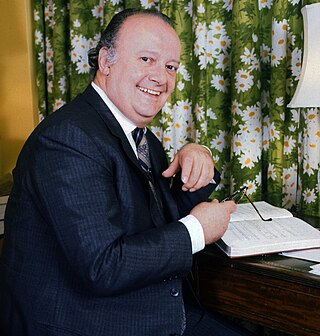
Tito Gobbi was an Italian operatic baritone with an international reputation.
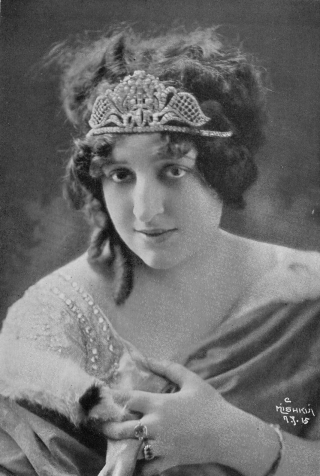
Claudia Muzio was an Italian operatic lyric soprano who enjoyed an international career during the early 20th century.
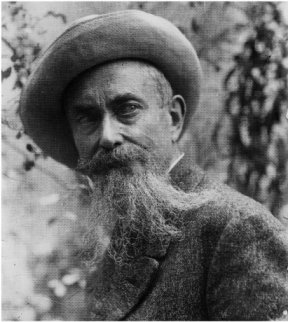
Luigi Illica was an Italian librettist who wrote for Giacomo Puccini, Pietro Mascagni, Alfredo Catalani, Umberto Giordano, Baron Alberto Franchetti and other important Italian composers. His most famous opera libretti are those for La bohème, Tosca, Madama Butterfly and Andrea Chénier.

Ruggero Raimondi is an Italian bass-baritone opera singer who has also appeared in motion pictures.

Maria Antonietta Stella was an Italian operatic soprano, and one of the most prominent Italian spinto sopranos of the 1950s and 1960s. She made her debut in Spoleto in 1950, as Leonora in Verdi's Il trovatore, a year later at Rome Opera, as Leonora in La forza del destino, in 1954 at La Scala in Milan, as Desdemona in Otello, in 1955 at the Royal Opera House in London as Aida, and in 1956 at the Metropolitan Opera in New York City, in the same role.
Tosco may refer to:

Giuseppe Taddei was an Italian baritone, who, during his career, performed multiple operas composed by numerous composers.

Karl Gustaf Ingvar Wixell was a Swedish baritone who had an active international career in operas and concerts from 1955 to 2003. He mostly sang roles from the Italian repertory, and, according to The New York Times, "was best known for his steady-toned, riveting portrayals of the major baritone roles of Giuseppe Verdi — among them Rigoletto, Simon Boccanegra, Amonasro in Aida, and Germont in La traviata".
Alberto Erede was an Italian conductor, particularly associated with operatic work.

Francesco Molinari-Pradelli was a prominent Italian opera conductor. He studied piano and composition at Bologna, and graduated from the Accademia di Santa Cecilia, Rome, in 1938. He made his debut at La Scala in 1946 and his Covent Garden debut in 1955. His account of Puccini's Turandot with Birgit Nilsson and Franco Corelli is commonly regarded as one of the greatest recordings of that work.
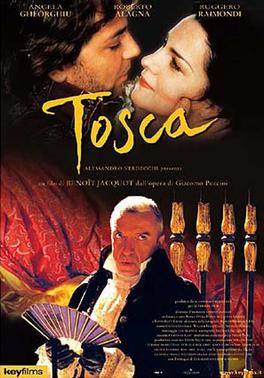
Tosca is a 2001 musical drama film written and directed by Benoît Jacquot, closely based on the 1900 opera Tosca with music by Giacomo Puccini and an Italian libretto by Luigi Illica and Giuseppe Giacosa, based in turn on the 1887 play by Victorien Sardou. The film stars soprano Angela Gheorghiu, tenor Roberto Alagna, and baritone Ruggero Raimondi, who mime their parts, sung in Italian. The soundtrack was pre-recorded in 2000 with the Royal Opera House orchestra and chorus conducted by Antonio Pappano.
An opera film is a recording of an opera on film.
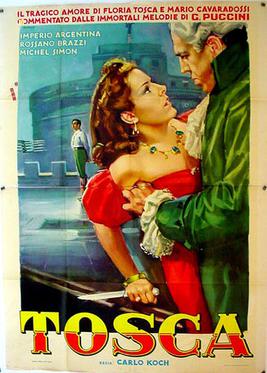
Tosca is a 1941 Italian historical drama film directed by Carl Koch and starring Imperio Argentina, Michel Simon and Rossano Brazzi. It is an adaptation of Victorien Sardou's play La Tosca and its subsequent opera version, Tosca, composed by Giacomo Puccini to a libretto by Luigi Illica and Giuseppe Giacosa. It was released in the United States as The Story of Tosca.